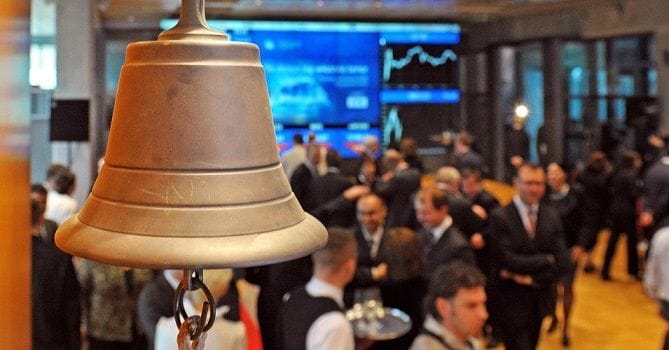- Fink 🧠
- Posts
- China GDP Disappoints, NZ CPI at 10 Year High
China GDP Disappoints, NZ CPI at 10 Year High

Slightly negative start to the week.
APAC indices are weaker led by China & HK, although these are off the lows posted early in the session.

07:18 BST
US Futures down by ~0.3%
US yields higher, particularly on the short end.
USD in favour, a little higher in the majors.
Oil continues its relentless march higher with Brent futures gapping higher on the open and now firmly through $85.

None of this is an enormous shock (except perhaps the improving unemployment rate):
“In response to the ugly growth numbers we expect in coming months, we think policymakers will take more steps to shore up growth, including ensuring ample liquidity in the interbank market, accelerating infrastructure development and relaxing some aspects of overall credit and real estate policies,”
- Louis Kuijs, head of Asia economics at Oxford Economics.
So, the overall picture (according to the official stats) is slowing industrial output growth amid energy shortages, while consumption may be picking up as retail sales grew 4.4% in September vs 2.5% in August.
Then there's the property market...
Home sales by value tumbled 16.9% in September from a year earlier, following a 19.7% drop in August, according to Bloomberg calculations based on National Bureau of Statistics data released Monday
Overall, it's not a pretty picture.
And China aren't in a rush to cut rates to provide support 👇
Analysts polled by Reuters expected the PBOC to keep banks’ reserve requirement ratio (RRR) unchanged in Q4, before delivering another 50-basis points cut in the first quarter of 2022.
Although they are continuing to open up to foreign investors...
Goldman is the second Wall Street firm to be granted full ownership of its onshore securities operations. The approval came about 10 months after it signed an agreement with its partner to take full control. It took the firm 7 months to win a nod in March 2020 to boost its stake in the venture to 51% from 33%.
Goldman had been competing to become the inaugural Wall Street bank with full control onshore with JPMorgan Chase & Co., which received its approval two months ago.
This “marks the start of a new chapter” for the China business and “will enable us to position our firm for long-term growth and success in this market under one wholly-owned entity,” the bank’s top executives, David Solomon, John Waldron, and Stephen Scherr, said in an internal memo.
China’s regulator expanded the investment scope for foreign investors, adding key commodity and stock market derivatives in the latest move to open its financial markets even as Beijing’s crackdown on a broad section of its private sector has roiled markets.
Qualified foreign investors will be able to trade commodity futures, commodity options and stock index options, China Securities Regulatory Commission said on its website on Friday. The changes will take effect in Nov. 1.
Enough about China for now...
Across the water to New Zealand, and the focus on runaway inflation, and more importantly, if the central bank will respond aggressively.

Traders are betting that they will 👇
Investors ratcheted up bets on further RBNZ rate hikes. Another increase is now fully priced in for the Nov. 24 policy decision and there’s a chance the bank will deliver a 50-point move, swaps data show.
Back in the UK, similar debates are underway.
Bailey said he continued to believe that the recent jump in inflation would be temporary, but that a surge in energy prices would push it higher and make its climb last longer, raising the risk of higher inflation expectations.
“Monetary policy cannot solve supply-side problems - but it will have to act and must do so if we see a risk, particularly to medium-term inflation and to medium-term inflation expectations,” Bailey said during an online panel discussion organised by the Group of 30 consultative group.
“And that’s why we at the Bank of England have signalled, and this is another such signal, that we will have to act,” he said. “But of course that action comes in our monetary policy meetings.”
Central banks are in a tricky spot.
They need to 'anchor' inflation expectations and this may require a hike or two while supply-side pressures work themselves out.
Increasing interest rates will primarily affect the demand side of the economy, risking a recovery that isn't yet complete.
However, they can't sit idly by for too much longer claiming "it's transitory" and expect to maintain credibility.
Increasing rates looks to be the path of least regret for some...
Looking ahead, not much on the calendar.
US industrial production and the BoC Business outlook survey will be of mild interest.